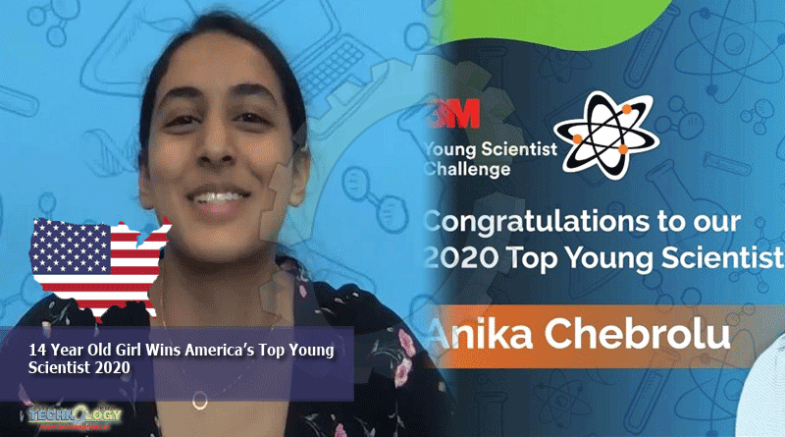14-Year-Old Anika Chebrolu, Won America’s Top Young Scientist Of 2020 For Discovering An Anti-Coronavirus Drug Candidate…

that can bind to SARS-CoV-2
With the pandemic ongoing across the world, scientists and aspiring scientists alike are rallying in an attempt to stop the virus, which has killed over 1.1 million people worldwide. 14-year-old Anika Chebrolu, who just won America’s Top Young Scientist of 2020 for discovering an anti-coronavirus drug candidate that can bind to SARS-CoV-2, the virus that causes Covid-19, and stop it in its tracks. Anika takes home $25,000, a prestigious award, and the incredible achievement of contributing to the global effort to fight against coronavirus.
The 3M Young Scientist Challenge is an annual event for students in grades 5-8 to submit a short video explaining their solution to an everyday problem. Each project is scored and 10 finalists are chosen. Anika won with her incredible discovery, beating out nine other impressive projects including a device that detects invisible particles in water, a robotic glove, and a renewable energy source.
“In spite of challenges, like adjusting to new norms of distance learning and participating in virtual events, this year’s 3M Young Scientist Challenge finalists have smashed through barriers with grit, creativity, innovative thinking, and excitement – all in the name of applying science to improve lives,” said Denise Rutherford, senior vice president of Corporate Affairs at 3M, in a statement. “3M is inspired by these young innovators and we celebrate each one of them. Our heartfelt congratulations go to this year’s winner, Anika Chebrolu, and our many thanks to all our 3M Young Scientist Challenge finalists.”
Anika’s project used in-silico modeling (using computer simulations to conduct experiments) to sift through millions of molecules that might be able to bind to the SARS-CoV-2 spike protein. Spike proteins are proteins on the surface of infectious viruses that allow them to penetrate host cells and initiate infection. Block them, and the virus cannot infect and reproduce in human cells – a process essential for the virus to cause damage to a host.
Anika managed to identify a drug that can selectively bind to the spike protein of SARS-CoV-2, which could be used in treatment to combat infection. Identifying the active component is first in the long process of drug creation and testing, but the discovery could be important in the pursuit of an anti-coronavirus drug.
It wasn’t just first place that produced amazing work. Runner-up and winner of $1,000, Kyle Tianshi engineered a portable Total Suspended Solids (TSS) device that monitors water quality and alerts when contaminants are detected. In third place and also taking home $1,000, Laasya Acharya used a neural network to detect crop diseases, hoping to reduce food waste and loss during harvesting.
“Amidst the challenges of a global pandemic, quality STEM education for all has become an even more urgent need, and 3M’s commitment to fostering the next generation of science leaders has never been more determined,” said Rutherford.
This news was originally published at iflscience.com
